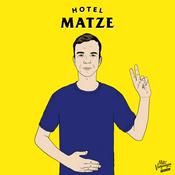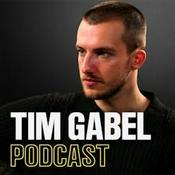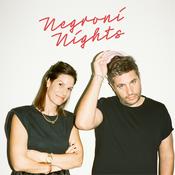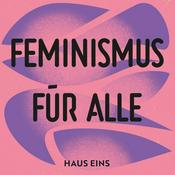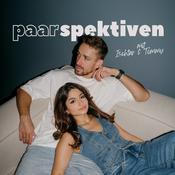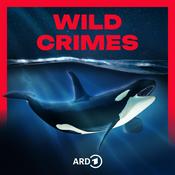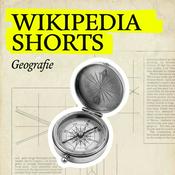405 Episoden
- How sport is giving some young women in India a way out of child marriage and allowing them to be seen.
Officially, the practice of child marriage is illegal in the country. But UNICEF estimates that over 200 million girls and women in India have been married before they turned 18. Take Munna as an example. Her mother was fifteen when she married and Munna herself was only 14 when she was told she would be a child bride. However, she fought back, using football as her weapon. She broke social norms and took up the sport, including wearing shorts on the pitch, and fended off various attempts to marry her off early. Now her rebellion has spread to her youngest sister, who has felt emboldened by her elder sister and has made it to the state football team.
Sport has also helped members of a marginalised community - the Siddis, who were originally brought to India from Africa mainly as slaves - to battle against discrimination. For Shahin her route was via judo.
Divya Arya reports on how sport is helping some young women to break free from the bonds of early marriage and to forge an identity for themselves.
Producer: John Murphy
Programme mix: James Beard
Programme co-ordinator: Katie Morrison
Series Editor: Penny Murphy - On Christmas Day 2025, the US carried out missile strikes on suspected Islamist militants in Nigeria. They came after President Trump said he would intervene to protect Christians amid controversial claims of a “Christian genocide” in the country. The Nigerian government rejects such claims, saying both Muslim and Christian communities have been affected by insecurity in the country. Alex Last visits Plateau state in central Nigeria one area where ethnic and sectarian violence that has been the focus of US concern, to hear from both sides and meet those trying to bring peace.
Produced and presented by Alex Last - In a case with profound implications for European migration policy, 24 former volunteer aid workers have been on trial on the Greek island of Lesbos. Seven years ago, they were arrested after rescuing thousands of migrants from the sea. Now, after many delays, the case involving charges of facilitating illegal entry of foreigners, membership of a criminal organisation and money laundering has gone ahead. Among the defendants facing a possible 20 years in jail have been the Syrian refugee and former competitive swimmer Sara Mardini - and Irish human rights activist and lawyer Sean Binder. They've denied the charges - and said the prosecution was an attempt by the Greek authorities to criminalise help to asylum seekers.
Tim Whewell reports on the trial, its outcome - and the consequences for Lesbos. In in 2015, when about 600,000 migrants arrived on the island after crossing the narrow strait from Turkey. In 2015, local people were proud of their efforts to rescue and support refugees. But later, attitudes changed. And NGOs stopped their rescue work - for fear more aid workers might be prosecuted. Now, far fewer migrants attempt the crossing to Greece. But those who do sometimes die in shipwrecks. And there are allegations, denied by Greece, that its police are illegally pushing asylum seekers back - putting them back on boats and abandoning them at sea.
What will the verdicts in this trial mean for Greece, for other European states that have been tightening their immigration policies - and for the defendants whose lives have been on hold for the last seven years?
Producer/presenter: Tim Whewell.
Sound mix: James Beard.
Translation/field production: Hibai Arbide Aza, Sophia Koufopoulou, Anthi Pazianou
Actors: Jason Barnett & Sam Swann
Production coordinator: Katie Morrison
Editor: Penny Murphy - 'Start by lighting a candle every morning.’ In other words, pray. That’s the advice on one social media platform to those looking for a rented property in the Netherlands. The pressure on housing is immense: an estimated shortage of 400,000 homes. It was the number one issue in the recent Dutch general election, with the winning D66 party promising to build '10 new cities'.
Desperate times call for desperate measures. Squatting was made a criminal offence over a decade ago, but with an estimated 90,000 homes standing empty, the squatters – krakers – are back. And there are thousands of people breaking the law by living year-round in holiday or recreation parks deep in the Netherlands’ countryside.
The authorities are trying to change the dynamics. The city of Amsterdam is cracking down on second homes and owners who leave a property vacant. And last year, in an effort to cool an overheated market and limit the exploitation of tenants, the national government strengthened rent controls. But this has only encouraged landlords to throw in the towel and put their properties up for sale.
There’s also a question mark over plans to build thousands of homes - and new cities - because of an obstacle few seem to have foreseen... Electricity. The Netherlands has enough power, but it doesn’t have the infrastructure to transport it to proposed new developments. The Dutch are known for innovation – especially in their management of water. Could floating apartment blocks be one of the answers? Linda Pressly meets both those at the sharp end of the Dutch housing crisis, and those working to mitigate its fallout.
Presenter: Linda Pressly
Producer: Tim Mansel
Production coordinator: Katie Morrison
Studio Mix by: Duncan Hannant
Editor: Penny Murphy - According to the Guinness Book of World Records, TB is humanity’s oldest contagious disease. It has become something of an afterthought in rich nations, but remains the world’s most deadly infectious disease. In 2024 it killed more than 1.2 million people.
South Africa has one of the highest TB burdens in the world, but it has also developed one of the most sophisticated scientific ecosystems for the study of the disease. Clinical trials conducted in the country have been crucial to the innovation of TB treatments, vaccines, diagnostics and prevention strategies.
Much of the funding for this research comes from American institutions. But since early 2025, streams of that money have been withdrawn due to a series of decisions by the Trump administration.
For Crossing Continents, Sandra Kanthal visits Cape Town and discovers the story of two intertwined landscapes: the people in local communities struggling with the burden of tuberculosis, and the scientific institutions embedded in them trying to tackle the disease - and why at the moment both are struggling.
Presenter/Producer: Sandra Kanthal
Producer in South Africa: Isa-Lee Jacobson
Editor: Penny Murphy
Sound Design: James Beard
Production Coordinator: Katie Morrison
Weitere Gesellschaft und Kultur Podcasts
Trending Gesellschaft und Kultur Podcasts
Über Crossing Continents
Stories from around the world and the people at the heart of them.
Podcast-WebsiteHöre Crossing Continents, Dark Matters – Geheimnisse der Geheimdienste und viele andere Podcasts aus aller Welt mit der radio.at-App
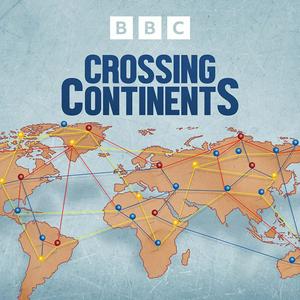
Hol dir die kostenlose radio.at App
- Sender und Podcasts favorisieren
- Streamen via Wifi oder Bluetooth
- Unterstützt Carplay & Android Auto
- viele weitere App Funktionen
Hol dir die kostenlose radio.at App
- Sender und Podcasts favorisieren
- Streamen via Wifi oder Bluetooth
- Unterstützt Carplay & Android Auto
- viele weitere App Funktionen


Crossing Continents
Code scannen,
App laden,
loshören.
App laden,
loshören.



